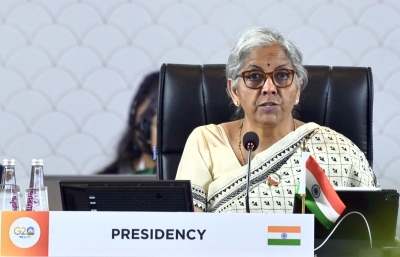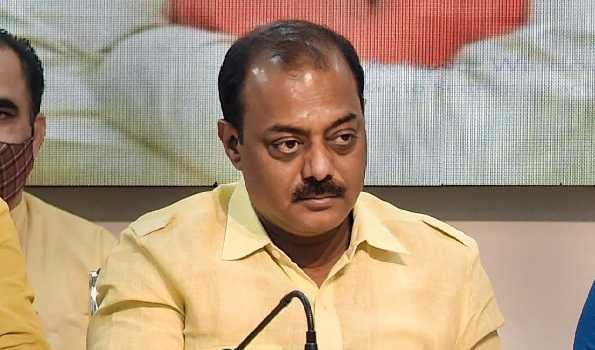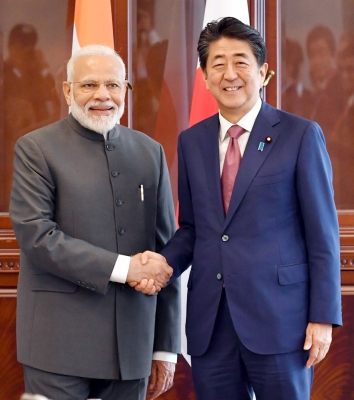
New Delhi, April 11: Finance Minister Nirmala Sitharaman on Tuesday slammed the reports appearing in Western media about violence against minorities in India, especially Muslims, saying that those commenting on such issues should come and see the reality on the ground as India has the second largest Muslim population in the world and the minorities are not only growing exponentially, they have been incentivised and doing their business in the country.
In an interaction with Adam Posen of the Peterson Institute of International Economics in Washington DC, during her ongoing tour of the US, the finance minister gave Pakistan’s example, saying that it was created as an Islamic country which had promised to treat minorities equally, however there the minorities and even several Muslim sects, which don’t agree with the majority community, have been “decimated and diminished in numbers”.
“In sharp contrast, minorities in India have only grown in numbers since 1947 and have been doing their businesses comfortably…They have been getting scholarships. India has the second largest Muslim population in the world. The answer also lies in the fact that investors have been coming to India. I will say that please come and see for yourself the reality, rather than listening to those who haven’t even seen what is happening on the ground,” she said during the interaction, which focussed on “resilience of the Indian economy amid tightening of Indian conditions”.
She was responding to a question by Posen on violence against Muslims in India as reported by Western media and also opposition MPs losing their status (referring to Rahul Gandhi’s disqualification from Parliament).
Meanwhile on the Indian economy’s resilience, the finance minister said that “it is due to the enterprising nature of Indians. Despite suffering and loss of lives, we took up Covid-19 as a challenge and helped each other. The government extended support to people through targeted approach and undertook humanitarian steps.”
Speaking on supply chain disruptions, the finance minister said, “Given the shocks witnessed due to supply chain disruptions, MNCs have become prudent and are diversifying. India is poised for a more important role in the global value chains. India is attractive because of its skilled youth and large domestic market.”
Highlighting India’s future goals, Sitharaman said, “Today, we are reaching saturation in providing basic facilities to citizens such as houses, electricity, transport, etc., and are empowering them. Emphasis is there on financial inclusion so that all have bank accounts and benefits reach them directly. Going forward, we are focusing on skilling and digitisation so that there’s greater ease of living, transparency and formalisation of the economy.”
On emerging markets and G20, she noted that India is carrying forward agendas of earlier G20 Presidencies, bringing issues on table that India considers important and also making way for the future G20 Presidencies to build upon the legacy of India’s G20 Presidency.
“Emerging Markets have G20 Presidencies for three consecutive terms from Indonesia in 2022, India in 2023 and Brazil next year. This will bring views of the Emerging Markets to the front and also the voice of the Global South on to the G20 table,” Sitharaman added.AA
She further said that the World Bank and International Monetary Fund (IMF) are also holding a roundtable on Global Sovereign Debt.
“Initial discussions happened at the first G20 FMCBG in Bengaluru. India’s G20 presidency will create discussion and sharing of information on this issue and it will be taken forward positively,” the finance minister added.
On the World Trade Organisation (WTO), Sitharaman added that it should be more open about issues.
“WTO has to be progressive and fair to all members. It has to give voice to all and not just hear but also heed. There’s a continuation of a moratorium since 1998 on electronic transmissions despite evolution to the digital age. Shouldn’t there be a change in WTO policy in terms of a moratorium? We don’t have to reverse the benefits of globalisation but make it more transparent,” she emphasised.





